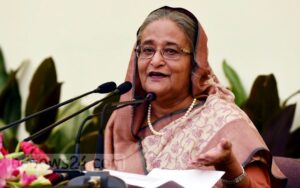
Recep Tayyip Erdogan seeks Ottoman Sphere of influence
London, 03 Sya’ban 1437/11 May 2016 (MINA) – What does London’s election of Sadiq Khan, a Muslim, and son of Pakistani migrants, as mayor mean for Europe amidst the prevailing anti-Muslim sentiment existing across the continent?
The event has been considered “a piece of history” with Khan being regarded as the first and most powerful Muslim politician in Europe.
Historically speaking, the novelty of the event is a construct that reinforces the view that Europe holds a united identity because it has historically been Christian (and additionally, implicitly white). This supposedly cohesive identity is currently facing deep challenges, the narrative goes, due to effects brought about by recent waves of migration.
This construct however is not new and faces a problem not only for what we think about Islam (and Judaism), but also for what we think Europe was and is.
Also Read: Harvard Builds Archive of Israeli Life, Preparing for “May Not Survive”
Marta Dominguez Diaz is an anthropologist and assistant professor of Islamic Studies at the University of St Gallen. Her research interests include Islam in Europe, Moroccan Islam, Sufism, Comparative Religion and Muslim-Jewish Relations.
The Ottoman influence
Islam has historically been a fundamental part of Europe, or at least of its Southern and Eastern regions for long time. Significant parts of the Iberian Peninsula were under Muslim rule between the 8th and the 16th centuries. Sicily was ruled by Muslims between the 9th and the 11th centuries and Greece was annexed by the Ottoman Empire from the mid-15th century and until 1832. Ottoman influence has also been relevant in Hungary and Albania.
Also Read: German Opposition Party Urges End to the Suppression of Pro-Palestinian Movement
Today, a part of Turkey, and significantly, Istanbul as a major European capital, is in its majority, Muslim. Furthermore, Islam has been and remains a fundamental part of the religious landscape of the Balkans, a region where religious crosspollinations have been the rule rather than the exception. Ivo Komšic, the current mayor of the predominantly Muslim Sarajevo, is Catholic.
London, although being one of Europe’s cities with a larger Muslim presence, is nonetheless a place where Muslims represent only 12.4% of the total population.
That means that many Londoners have elected a politician whose religious orientation does not coincide with that of their own. It is good to remember, however, that this is not novel either. Rotterdam, a city in which Muslims approximately represent a quarter of the population, has had a Moroccan-born Muslim mayor since 2009.
What is then so original about Sadiq Khan’s election?
Also Read: Palestinian Football Team Plays Historic Friendly in Spain Amid Solidarity Display
Sadiq Khan’s Muslimness has been used by its adversaries to try to deprecate him. His Conservative opponent, Zac Goldsmith, has attempted to build a connection between Khan and Jihadi Muslims, basing his accusations on Khan, a former human rights lawyer, defending Nation of Islam leader Louis Farrakhan in a court case.
Khan’s Islam faith has also received critiques from within the Labour Party, and of course, from Islamists who see in his liberalism flawed religious credentials.
Although hardline positions on Islam and immigration have been used by right-wing parties across Europe for a number of years now, from France’s National Front to Germany’s Alternative für Deutschland, what is unprecedented is using religious adherence and not simply religion, as a mechanism to denigrate a contender.
This is worrying for religious freedom, because it is not even the supposed effect Islam is believed by some to have in individuals or communities, but it is the simple fact of being a Muslim that is deemed as wrong.
Also Read: Paul Pogba and Hakim Ziyech Among Athletes Urging UEFA to Boycott Israel
The positive side of Islam
Other significant novelties in Khan’s case are also worth noting. The widespread negative reaction to these tactics is also unprecedented. There has been furious criticism of the attacks within the Conservative and Labour parties and by the wider public.
Additionally, Islam has only been taken as denigrator and not an asset of Khan’s position. Islam is seen as diminishing rights rather than as an inspiration to advance them.
Also Read: Auckland Protesters Rally for Palestine, Urge Nationwide Boycott of Israeli Products
This also tells us something important about how Islam is viewed by Europeans. Thus, none of the characteristics in Khan’s ‘savoir-faire’ and in his programme – his promise to tackle the housing crisis and rocketing transport fares, as well as his vision for a greener and safer London – are seen as connected to his Islam, a system of values after all, but almost, in spite of Islam.
His supporters, in contraposition to his detractors, have not played ‘the Islam card’ but rather, the one of class, by arguing, the new mayor is the quintessence of the Muslim immigrant success story. This factor, although new, surprises no one, as secularism constitutes a foundational principle of Europe’s liberal left and the use of religious affiliation in political terms would from that perspective be seen as a violation of the principle of secularism.
Khan himself only speaks about his Muslim identity when confronted in very direct ways. But when he does so, he has been smart enough as to use it to elaborate on a new, more constructive way of looking at Huntington’s ‘Us (Westerners) versus Them (Muslims)’ paradigm.
In an interview given to the Times Magazine, when questioned on whether he as a Muslim felt an extra responsibility to tackle religious extremism, Khan replied: “Being someone who is a Muslim brings with it experiences that I can use in relation to dealing with extremists […] it’s really important that I use my experiences to defeat radicalisation and extremism […] I am the West, I am a Londoner, I’m British, I’m of Islamic faith, Asian origin, Pakistani heritage, so whether it’s [Islamic State] or these others who want to destroy our way of life and talk about the West, they’re talking about me.”
Also Read: Protesters in London Denounce Israeli Violations of Gaza Ceasefire
In Europe’s times of increasingly tense relations between Muslims and non-Muslims, we can only hope that this genuine way of shifting the terms of the ‘clash’ is, at least, partially responsible for his victory. As Homa Khaleeli wrote for the Guardian: “Sadiq Khan’s victory won’t end Islamophobia, but it offers hope.” (T/R07/R01)
Mi’raj Islamic News Agency (MINA)
Also Read: Russia Defends Indonesia, Calls IOC “Hypocritical” Over Israel Visa Dispute




























 Mina Indonesia
Mina Indonesia Mina Arabic
Mina Arabic